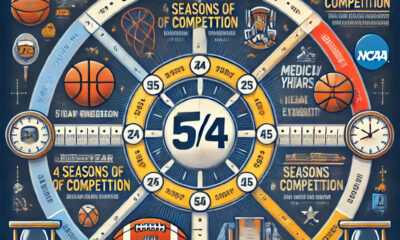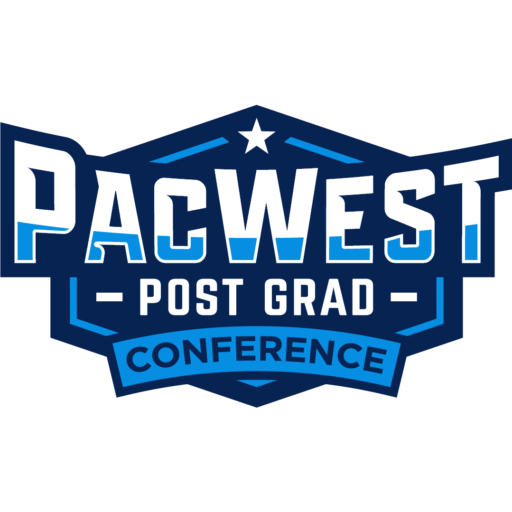
When considering college degree options, it’s important to understand the various types of degrees available and what each one represents in terms of academic focus, duration, and career pathways. Here’s a breakdown of the different college degree options:
- Associate Degree
Overview:
An Associate Degree is typically a 2-year undergraduate degree awarded by community colleges, junior colleges, and some four-year institutions. It serves as a foundation for either entering the workforce or transferring to a 4-year school to pursue a Bachelor’s degree.
Types of Associate Degrees:
– Associate of Arts (AA): Focuses on general education and liberal arts courses (e.g., humanities, social sciences, languages). Ideal for students planning to transfer to a 4-year school to pursue a Bachelor’s in a related field.
– Associate of Science (AS): Similar to the AA but focuses more on mathematics, natural sciences, and technical subjects. Often pursued by students intending to continue to a Bachelor’s in science, engineering, or technology fields.
– Associate of Applied Science (AAS): Designed for students who want to enter the workforce directly after graduation, typically in fields like nursing, information technology, or skilled trades (e.g., HVAC, automotive repair). The emphasis is on practical skills and training.
– Associate of Fine Arts (AFA): Focuses on arts-related fields, including music, theater, dance, and visual arts.
Duration:
Typically 2 years of full-time study.
Goal:
To prepare students for entry-level careers or provide a stepping stone to a Bachelor’s degree.
- Bachelor’s Degree (Undergraduate)
Overview:
A Bachelor’s Degree is a 4-year undergraduate degree awarded by colleges and universities. It is the most common degree for individuals pursuing higher education and provides deeper knowledge and expertise in a specific field.
Types of Bachelor’s Degrees:
– Bachelor of Arts (BA): Typically awarded in fields like humanities, social sciences, and liberal arts. It often includes a broad range of courses, allowing students to develop well-rounded critical thinking and communication skills. Examples: History, English, Psychology, Sociology.
– Bachelor of Science (BS): Often awarded in more specialized and technical fields such as science, engineering, health, or business. It usually requires a more focused curriculum with specific coursework in the chosen field. Examples: Biology, Chemistry, Computer Science, Engineering.
– Bachelor of Fine Arts (BFA): Typically awarded in creative fields such as visual arts, theater, dance, and music. The BFA is more focused on practical artistic skills and portfolio development.
– Bachelor of Business Administration (BBA): A specialized Bachelor’s degree in business, covering core areas like management, marketing, and accounting.
– Bachelor of Engineering (BEng): Awarded in engineering disciplines like civil, mechanical, or electrical engineering, typically requiring more technical and math-heavy coursework.
Duration:
Typically 4 years of full-time study.
Goal:
To provide students with comprehensive knowledge in a specific field of study, preparing them for careers in that area or for graduate study.
- Master’s Degree (Graduate)
Overview:
A Master’s Degree is a graduate-level degree that generally requires 1-2 years of study beyond a Bachelor’s degree. It provides specialized knowledge and expertise in a particular field and can often lead to advanced career opportunities or professional licensure.
Types of Master’s Degrees:
– Master of Arts (MA): Typically awarded in the humanities, social sciences, and other non-technical fields. Examples: English, History, Education, Communication.
– Master of Science (MS): Awarded in more technical or scientific fields, such as computer science, engineering, or biology. Examples: Physics, Chemistry, Information Technology, Environmental Science.
– Master of Business Administration (MBA): A professional degree that focuses on business leadership, management, and strategy. This degree is often pursued by those looking to move into executive roles or entrepreneurship.
– Master of Fine Arts (MFA): An advanced degree for artists, actors, and other creatives. It focuses on developing advanced skills in a specific art form (e.g., writing, performing, visual arts).
– Master of Education (MEd): Typically pursued by those wanting to become educators or administrators. It includes specialized training in teaching methodologies, leadership, and curriculum design.
Duration:
Typically 1-2 years of full-time study, but some programs may be part-time or accelerated.
Goal:
To deepen knowledge in a specific field, often to prepare for more senior positions or specialized career paths. It can also be a stepping stone for doctoral study.
- Doctoral Degree (PhD and Professional Doctorates)
Overview:
A Doctoral Degree is the highest level of academic degree and involves advanced study, original research, and a dissertation or thesis. Doctoral programs are typically pursued by those aiming for careers in academia, research, or specialized fields.
Types of Doctoral Degrees:
– Doctor of Philosophy (PhD):
A research-based doctoral degree awarded in a wide range of academic disciplines (e.g., humanities, social sciences, natural sciences). PhD programs emphasize original research and contribution to the academic field. The culmination is often a dissertation or thesis.
– Professional Doctorates:
These degrees focus more on the practical application of advanced knowledge in specific professions rather than academic research. Examples:
– Doctor of Medicine (MD): For those pursuing careers as physicians.
– Doctor of Jurisprudence (JD): For those pursuing careers as lawyers.
– Doctor of Education (EdD): Aimed at professionals in education leadership and administration.
– Doctor of Business Administration (DBA): Focuses on business practices and leadership in the corporate world.
Duration:
Typically, 3-7 years, depending on the field, program, and whether it’s research-based or professional.
Goal:
To develop expertise in a particular field, often leading to careers in academia, high-level research, or top-tier professional roles.
- Certificates and Diplomas
Overview:
These are shorter, non-degree programs that offer specialized training or certification in specific areas. They are often used to gain skills quickly or enhance one’s qualifications without committing to a full degree program.
Types of Certificates:
– Professional Certificates: Offered by universities, trade schools, or online platforms. They focus on specific job skills (e.g., project management, IT certifications, digital marketing).
– Graduate Certificates: Typically awarded after earning a bachelor’s degree, these are shorter programs that provide expertise in a specialized area of a field (e.g., business analytics, healthcare management).
Duration:
Varies can range from a few months to a year, depending on the program.
Goal:
To gain specialized skills or credentials, often for career advancement or entry into a specific industry.
Summary of Degree Options:
| Degree Type | Typical Duration | Focus/Goal | Examples |
| Associate Degree | 2 years | Foundation for a career or transfer to a 4-year college | AA, AS, AAS, AFA |
| Bachelor’s Degree | 4 years | In-depth study in a specific field, preparation for career or further study | BA, BS, BFA, BBA, BEng |
| Master’s Degree | 1-2 years | Specialized knowledge, professional advancement | MA, MS, MBA, MFA, MEd |
| Doctoral Degree | 3-7 years | Advanced research or professional expertise | PhD, MD, JD, EdD, DBA |
| Certificates/Diplomas | Few months to 1 year | Specialized training for specific skills or credentials | Project Management, IT, Business |
Each degree option serves a different purpose depending on a student’s career goals, interests, and the level of expertise they wish to achieve.


Must See
-


Academics
/ 1 year agoBreaking down the college 5/4 rule and benefits it has after attending a Post Grad Sports Academy
What is the College NCAA 5/4 rule
By PWPGC
 ad code here
ad code here Title
-


Football
/ 7 months agoPacWest Post Grad Conference Kicks Off with Inaugural 2025 Football Season Schedule for Perazen Elite Prep Academy
The stage is set for an electrifying debut as the PacWest Post Grad Conference...
By PWPGC -


Academics
/ 12 months agoPost High School program provides an opportunity to advance your college sports career!
The PacWest Post Grad Conference offers student-athletes an exceptional opportunity to gain exposure through...
By PWPGC



